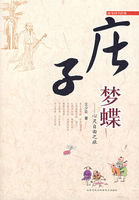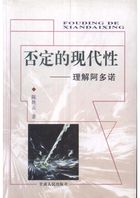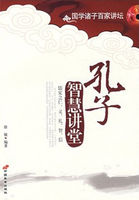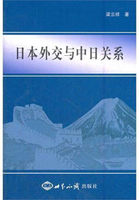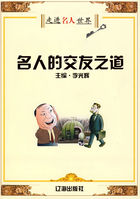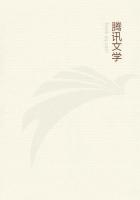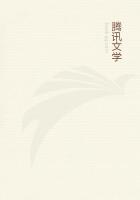With regard to those who draw one into repeating the same thing anumber of times,it is clear that one must not grant that predicationsof relative terms have any meaning in abstraction by themselves,e.g.that ”double” is a significant term apart from the whole phrase”double of half” merely on the ground that it figures in it.For tenfigures in ”ten minus one” and in ”not do”,and generally theaffirmation in the negation; but for all that,suppose any one were tosay,”This is not white”,he does not say that it is white.The bareword ”double”,one may perhaps say,has not even any meaning at all,any more than has ”the” in ”the half”:and even if it has a meaning,yet it has not the same meaning as in the combination.Nor is”knowledge” the same thing in a specific branch of it (suppose it,e.g.to be ”medical knowledge”) as it is in general:for in general itwas the ”knowledge of the knowable”.In the case of terms that arepredicated of the terms through which they are defined,you should saythe same thing,that the term defined is not the same in abstractionas it is in the whole phrase.For ”concave” has a general meaningwhich is the same in the case of a snub nose,and of a bandy leg,but when added to either substantive nothing prevents it fromdifferentiating its meaning; in fact it bears one sense as appliedto the nose,and another as applied to the leg:for in the formerconnexion it means ”snub” and in the latter ”bandyshaped”; i.e.itmakes no difference whether you say ”a snub nose” or ”a concave nose”.
Moreover,the expression must not be granted in the nominative case:
for it is a falsehood.For snubness is not a concave nose butsomething (e.g.an affection) belonging to a nose:hence,there isno absurdity in supposing that the snub nose is a nose possessingthe concavity that belongs to a nose.
With regard to solecisms,we have previously said what it is thatappears to bring them about; the method of their solution will beclear in the course of the arguments themselves.Solecism is theresult aimed at in all arguments of the following kind:”Is a thingtruly that which you truly call it?”Yes”.”But,speaking of a stone,you call him real:therefore of a stone it follows that "him isreal".” No:rather,talking of a stone means not saying which” but”whom”,and not ”that” but ”him”.If,then,any one were to ask,”Is astone him whom you truly call him?” he would be generally thoughtnot to be speaking good Greek,any more than if he were to ask,”Is hewhat you call her?” Speak in this way of a ”stick” or any neuter word,and the difference does not break out.For this reason,also,nosolecism is incurred,suppose any one asks,”Is a thing what you sayit to be?”Yes”.”But,speaking of a stick,you call it real:
therefore,of a stick it follows that it is real.”Stone”,however,and ”he” have masculine designations.Now suppose some one were toask,”Can "he" be a she" (a female)?”,and then again,”Well,but isnot he Coriscus?” and then were to say,”Then he is a "she",” he hasnot proved the solecism,even if the name ”Coriscus” does signify a”she”,if,on the other hand,the answerer does not grant this:thispoint must be put as an additional question:while if neither is itthe fact nor does he grant it,then the sophist has not proved hiscase either in fact or as against the person he has beenquestioning.In like manner,then,in the above instance as well itmust be definitely put that ”he” means the stone.If,however,thisneither is so nor is granted,the conclusion must not be stated:
though it follows apparently,because the case (the accusative),that is really unlike,appears to be like the nominative.”Is ittrue to say that this object is what you call it by name?”Yes”.”Butyou call it by the name of a shield:this object therefore is "of ashield".” No:not necessarily,because the meaning of ”this object” isnot ”of a shield” but ”a shield”:”of a shield” would be the meaningof ”this object”s”.Nor again if ”He is what you call him by name”,while ”the name you call him by is Cleon”s”,is he therefore”Cleon”s”:for he is not ”Cleon”s”,for what was said was that ”He,not his,is what I call him by name”.For the question,if put inthe latter way,would not even be Greek.”Do you know this?”Yes.”
”But this is he:therefore you know he”.No:rather ”this” has not thesame meaning in ”Do you know this?” as in ”This is a stone”; in thefirst it stands for an accusative,in the second for a nominativecase.”When you have understanding of anything,do you understand it?”
”Yes.”But you have understanding of a stone:therefore youunderstand of a stone.” No:the one phrase is in the genitive,”of astone”,while the other is in the accusative,”a stone”:and whatwas granted was that ”you understand that,not of that,of which youhave understanding”,so that you understand not ”of a stone”,but ”thestone”.
Thus that arguments of this kind do not prove solecism but merelyappear to do so,and both why they so appear and how you should meetthem,is clear from what has been said.
We must also observe that of all the arguments aforesaid it iseasier with some to see why and where the reasoning leads the hearerastray,while with others it is more difficult,though often theyare the same arguments as the former.For we must call an argument thesame if it depends upon the same point; but the same argument is aptto be thought by some to depend on diction,by others on accident,andby others on something else,because each of them,when worked withdifferent terms,is not so clear as it was.Accordingly,just as infallacies that depend on ambiguity,which are generally thought tobe the silliest form of fallacy,some are clear even to the man in thestreet (for humorous phrases nearly all depend on diction; e.g.”Theman got the cart down from the stand”; and ”Where are you bound?”
”To the yard arm”; and ”Which cow will calve afore?”Neither,butboth behind;” and ”Is the North wind clear?”No,indeed; for it hasmurdered the beggar and the merchant." Is he a Good enough—King?”No,indeed; a Rob—son”:and so with the great majority of the rest aswell),while others appear to elude the most expert (and it is asymptom of this that they often fight about their terms,e.g.
whether the meaning of ”Being” and ”One” is the same in all theirapplications or different; for some think that ”Being” and ”One”

